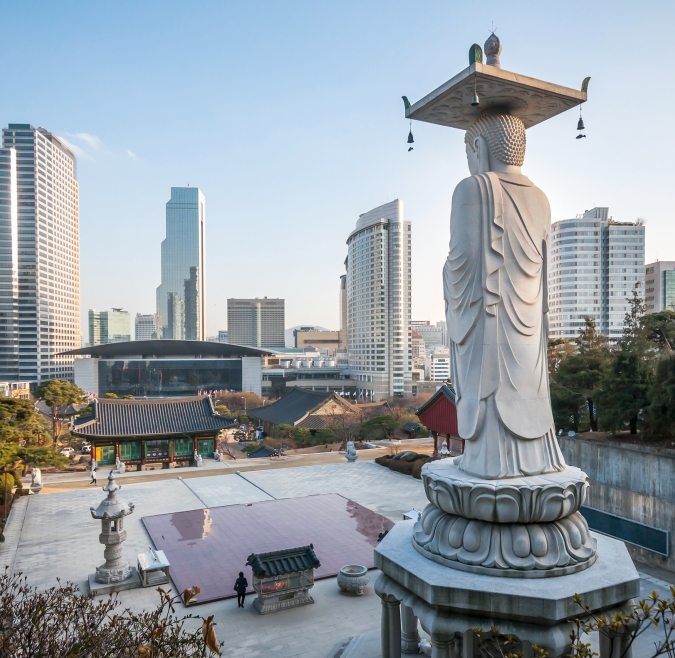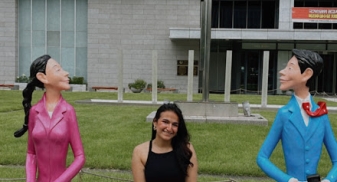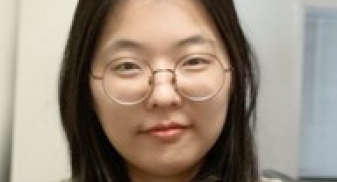Summer: Rutgers - Rutgers Ewha Study Abroad (RESA)
The Program
A new faculty-led program for Summer in collaboration with Rutgers Global and the department of Asian Languages and Cultures!
Students will be enrolled in a Korean culture course at Ewha University in South Korea. Students can also take part in guided research, Korean language courses, and an internship! Courses are taught by both Rutgers & Ewha faculty.
*Accepted students will be asked to attend organizational meetings and participate in preparatory small-group assignments prior to arrival in Seoul. These activities are designed to ensure a smooth, productive, and student-centered class-room experience while at Ewha.
Program Locations

South Korea
Seoul
Seoul, the capital of the Republic of Korea, is among the world’s largest cities and the largest in South Korea, with a population of more than 10 million. The city is said to be built on eight mountains—four inner mountains that surround the old city, and four outer—so expect some steep slopes and spectacular views. The city also has a vibrant nightlife with a variety of clubs, bars, cafés, and restaurants. Seoul may be large and the pace of life often frantic, but that doesn’t mean there’s no chance to relax—nothing gets in the way of the daily tea ceremony. There are also many amazing sites to visit, from Gyeongbokgung Palace, Namsan Mountain, Seoul Tower, Han River, Myeongdong Market for shopping, and much more.
Academics
Students will be enrolled in their 4.5 or 6 credit course track by our office.
Students will take a minimum of 4.5 credits in the following combinations and their curriculum integration and assessment will be closely supervised by their RESA faculty advisor:
Required of all students:
-
Korean Topics course taught by RU professor (3 credits)
Electives:
- Korean Language course (3 credits), taught by EWHA faculty
-
Guided Research (1.5 credit), supervised by Rutgers faculty
-
Service Learning/Internship (1.5 credit), supervised by Rutgers faculty
Course sharing with Ewha: "Topics in 21st-Century Korea" (3 credits):
-
ALC faculty will provide a selection of 4-week courses under “Topics in 21st-Century Korea” to foster socio-historically grounded understanding of Korea for Rutgers students and a limited number of Ewha students. These courses would provide unique curricular content designed to naturally complement Korea’s program existing courses offered during the academic year.
Sample courses:
-
“Everyday Life in Contemporary Seoul,” taught by assistant prof. Jae Won Chung (a specialist of South Korean literature and visual culture and experienced literary translator) will introduce different approaches for understanding how everyday life is constituted in 21st-century Seoul, using history, literature, cinema, and ethnography. He will lead field trips to the Seoul Museum of History, the Literature Translation Institute of Korea, the Korea Film Archive. The final week’s session will culminate with a guided ethnography project in select neighborhoods of Seoul.
Cultural Explorations Electives
(1) Guided Research: (1.5 credit, 100 level course)
The syllabus consists of submission of pre-departure research proposal on self-guided exploration plan, weekly meetings with the faculty advisor in Seoul, presentations, and the final paper. Gleaning ideas from our already approved Language Engagement Project (LEP) courses, we will suggest topics in Korean history, media, food, and language such as Exploring Seoul Through Korean Films, Korean Business Culture (a 991 Challenge winner in 2019), East Asian Contributions to World Cuisine, Taste of Korea: Culinary Politics in Contemporary S. Korea, Korean Folk Traditions, Current Economic and Political Issues of South and North Korea, and Sociolinguistic Features of the Korean Language. In addition, students will be encouraged to do historical research on the relationship between Korea and the U.S. based on locally available resources [Exploring connections between American missionaries from the New Brunswick Seminary and 19th century Korean reformers, Investigating Christian influences on early modern Korea using the primary data of journal entries and letters in the William Elliott Griffis Collection at Rutgers Libraries, etc.]
(2) Service Learning/Internship (1.5 credit, 100 level course)
Students will have the option of applying for a limited number of internships in Korean or in English to gain professional experience. The advisor will monitor their progress based on students' daily online journal as well as the evaluative report from the service organization. Based on our large-scale in-house survey of students in 2017, we are developing a curriculum for Korean for Specific Purposes (KSP), which consists of two core fields of "Job Application" and "Workplace Language/Culture" and optional modules of Entertainment and Arts, Diplomacy/International Relations, Medicine, ESL, and Legal/Court Translation. Since 2008, Korean language program has been engaged in training NJ K-12 Korean Teachers, and 10 out of 11 NJ certified teachers obtained their certification through our program. The launching of our new Korean English Translation/Interpreting Certification Program, one of the first academic curriculum in the U.S. will provide bilingual students with opportunities to address local problems within a globalizing intercultural framework. Students who are interested in language education or K-E translation will greatly benefit from on-site opportunities.
Housing and Meals
Students will stay in a residence hall managed by EWHA university.
Financial Information
Program Costs
| NJ Resident | non-NJ Resident | |
|---|---|---|
| 4.5 credits | $4,950 | $5,470 |
| 6 credits | $6,430 | $7,130 |
Program Cost includes:
- Tuition
- Housing
- Excursions
- Administrative Fees
- Emergency Medical Access Abroad
Out-of-Pocket Costs
| Airfare | $2,000 |
| Meals | $400 |
| Books and Classroom Materials | $100 |
| Local Transportation | $40 |
| Personal Expenses | $300 |
| Total | $2,840.00 |
Out-of-Pocket Cost includes:
The above costs are estimations and represent the known out-of-pocket costs students encounter during their time abroad.
Some of these expenses will be paid for prior to going abroad, such as an airline ticket, while some of these expenses, such as meals and personal expenses, will be paid in-country as part of your daily expenses. As you plan, you will need to budget these costs and spend wisely throughout your time abroad.


